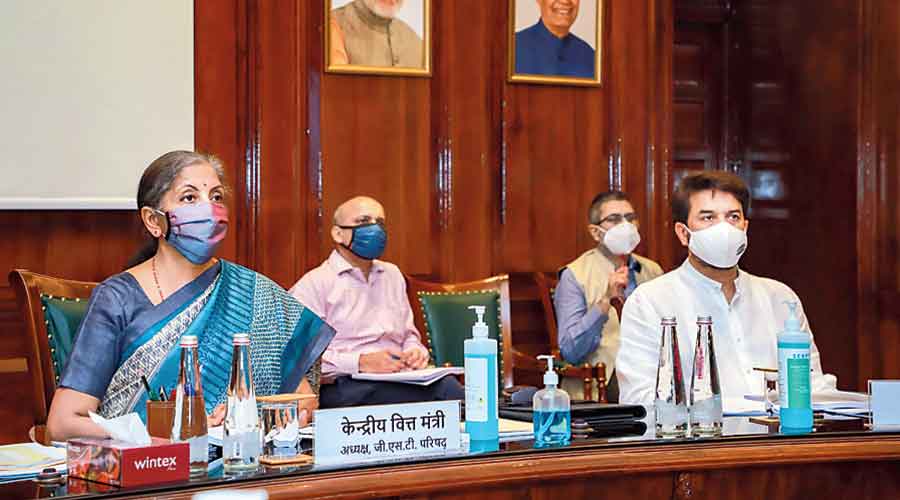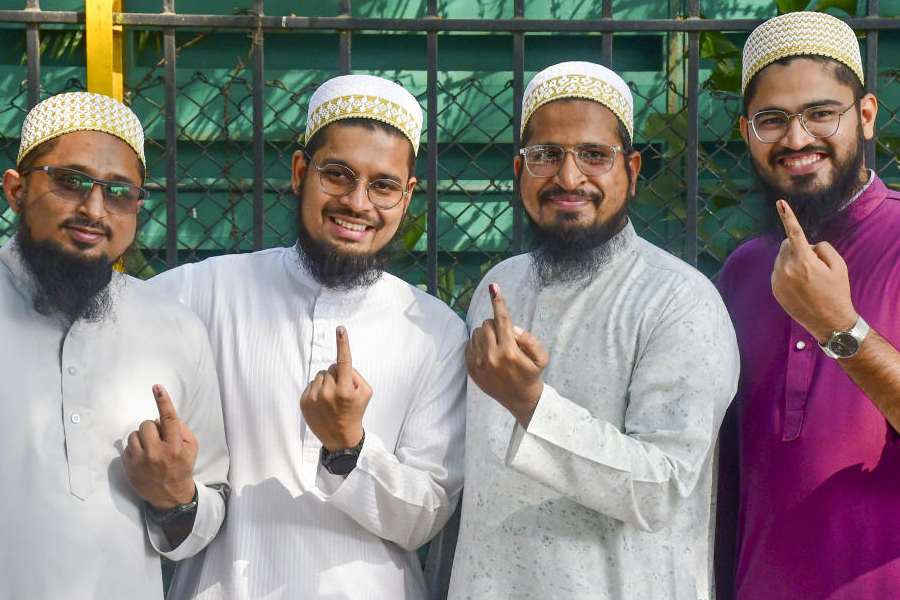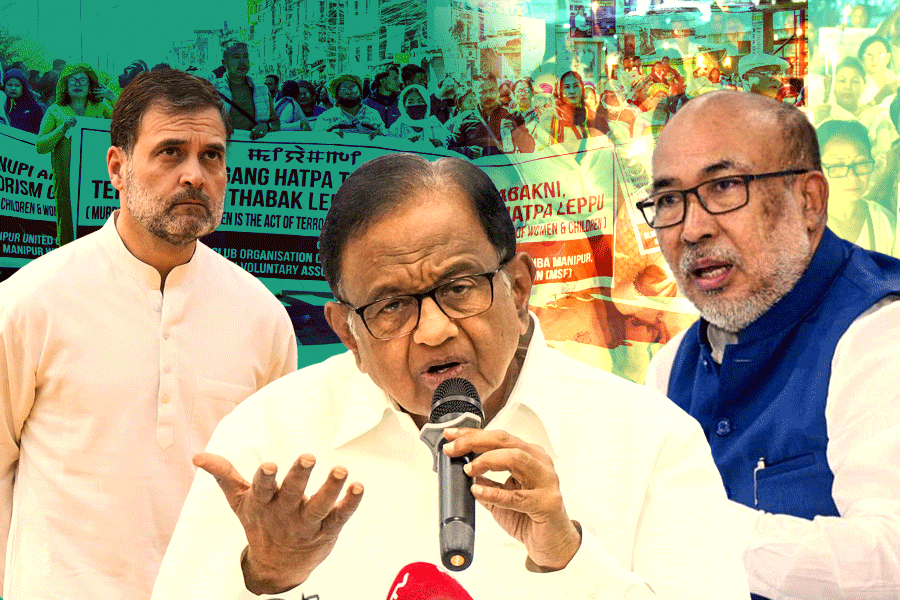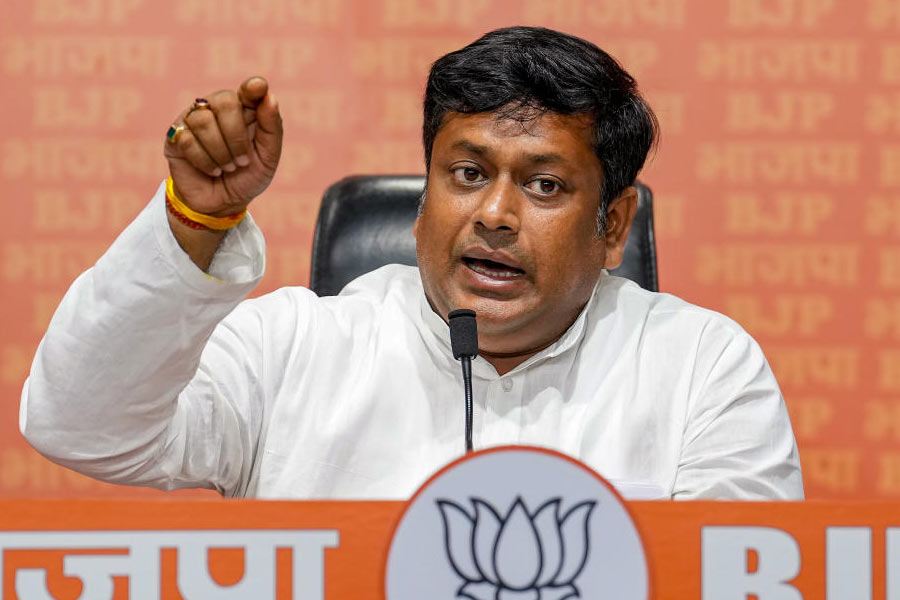The compensation cess of Rs 20,000 crore collected this fiscal will be disbursed to states on Monday night itself, finance minister Nirmala Sitharaman said after the meeting of the GST Council.
In a bid to lower compliance, tax payers whose annual turnover is less than Rs 5 crore will submit GST quarterly returns instead of monthly filings.
Besides the council has accepted the Sushil Modi-panel proposals on the sharing of proceeds collected on the movement of goods and services across states — the integrated goods and services tax (IGST).
Earlier, there was no formula for the devolution of IGST, which had resulted in several anomalies in its distribution.
For states which received less amount of IGST for 2017-18, Sitharaman said the Centre will next week transfer a cumulative sum Rs 24,000 crore. Excess IGST apportioned to certain states would be retrieved. However, the minister did not mention the amount.
“A committee under Bihar minister Sushil Modi has worked out a way to resolve IGST devolution issue. A sum of Rs 24,000 crore which has to go to states that received less will get the amount now. We aren’t asking states that received more to pay back dues now,” the finance minister said.
The council also extended the GST compensation cess beyond 2022. However, on the issue of borrowing options to meet revenue shortfall, there was no consensus.
“Entire compensation is going to be paid back to the states. Compensation shortfall which has arisen due to GST implementation or due to Covid-19 is all going to be given back to the states,” Sitharaman said.
Some changes have already been made, based on inputs from states, to the borrowing options to meet the shortfall in compensation, the finance minister said. In the first borrowing option, instead of Rs 97,000 crore provided earlier, the amount has been raised to Rs 1.1 lakh crore.
On repayment schedules, the minister said, interest on borrowed amounts will be the first charge on the cess which gets collected beyond five years. The next charge could be 50 per cent on the principal amount which gets borrowed.
“The gap in compensation arising due to the extraordinary situation because of Covid-19 will be paid out of the cess which gets collected after five years,” Sitharaman said.
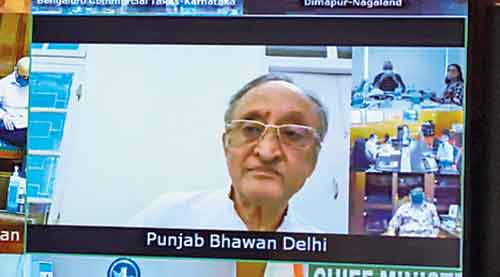
Amit Mitra attends via video conference. PTI
Lower compliance
From January 1, taxpayers whose annual turnover is less than Rs 5 crore will not be required to file monthly returns such as GSTR 3B and GSTR-1. They will only file quarterly returns, said finance secretary Ajay Bhushan Pandey.
“Ease of compliance holds the promise of more taxpayers coming forward to be compliant and thus truly transforming GST to become a good and simple tax,” Atul Gupta, partner at Deloitte, said.
From April 1, 2021, for B2B suppllies, taxpayers with a turnover of more than Rs 5 crore will have to compulsorily mention HSN codes up to six digits. Those with turnover less than Rs 5 crore will have to mention HSN code up to four digits.
In certain classes of goods where the government feels the need for closer tracking, HSN codes will be of eight digits. These will be notified by the government, Pandey said.
The GST Council also exempted satellite launch services by ISRO, Antrix from GST.
As for refunds, in order to keep a check on them, they will be given to those bank accounts validated by PAN and Aadhaar.
“The GST Council has decided that the refund application can be signed via Aadhar,” Pandey said.

